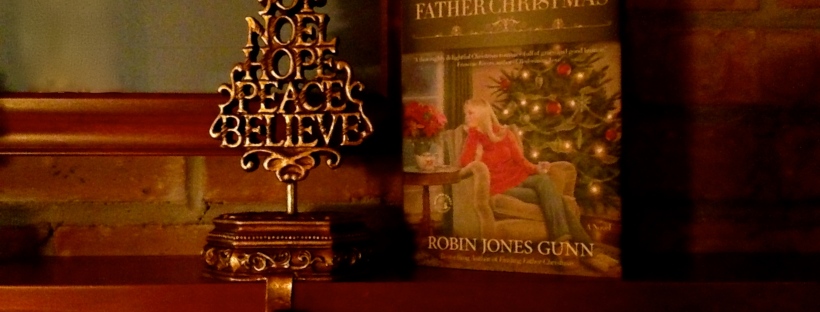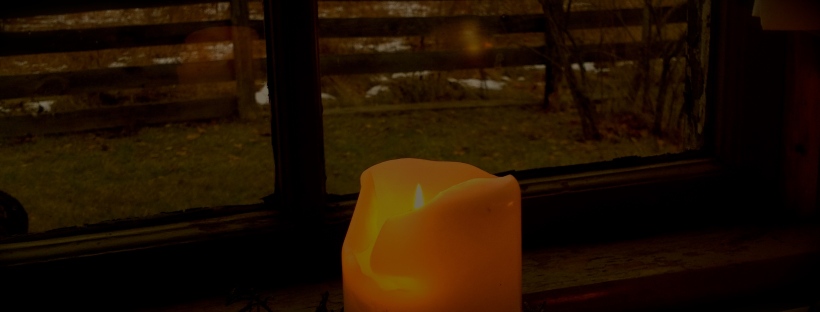When Cousin Agatha practically invites herself to the O’Dell family’s Thanksgiving, most of them welcome her. What could possibly be bad about letting a solitary old woman into your home, right?
The holidays are known for surprises. In the O’Dells case, the surprise of Cousin Agatha isn’t so sweet.
By the end of Thanksgiving dinner, Mabel O’Dell and her family are worn out by Cousin Agatha’s demanding ways. Then she announces that she thinks she’ll stay until Christmas!
As Mabel confides in her friend Sarah Jane, she’s pretty sure that if Cousin Agatha stays, she herself will “just die,” [1] rather than live that long with this woman who wants to see everyone else working but won’t lift a finger herself.
Have you ever been in Mabel’s shoes? For all the wonderful wonders of the Christmas season, it is also sometimes a wonder that many of us have to face our most challenging relatives during this season that is heralded as a time of joy and peace.
How do you handle them without losing your mind?
I think the story of “Cousin Agatha” by Arleta Richardson offers some helpful tips.
- Take one day at a time. For Mabel O’Dell, looking ahead to a whole month of Cousin Agatha is unbearable. Her mother offers some sound advice. “The Lord only sends us one day at a time…Don’t worry about more than that. When the other days arrive, you’ll probably find out you worried about all the wrong things.” She has a good point, right? If you don’t think you can stand a week with Uncle Arnold, just make it through day by day. Something else I’ve learned is that the middle of any stretch of time is almost always the hardest, whether it’s five days or a month. Once you make it through the middle, you can usually make it to the end.
- Don’t feel compelled to cater to their every whim or want. When Cousin Agatha complains about poor old Pep the dog coming into the house to escape the winter chill, Ma doesn’t flap her apron and make him trot out the door. She calmly explains the situation and lets Cousin Agatha grumble to herself. The tricky part is to continue both keeping your cool and standing your ground. It’s good to remember that one of the most loving two-letter words you can say to someone might very well be “no” if it’s said in a loving way.
- Speaking of love, why not love your unpleasant relations “to death”? While Mabel’s friend Sarah Jane suggests that she herself might consider giving Cousin Agatha a little encouragement to leave, Mabel remembers her dad’s view that “Christian love is the best solution.” Sarah Jane’s response? “All right, then…Love her to death.” Okay, so that may sound a little paradoxical, but I think it illuminates an interesting fact: Sometimes we can love people to the point that their crabby, Scrooge-ish ways just lay down and die. Of course, that’s a lot easier said than done.
- One thing that might help is to try to understand where they’re coming from. Of course, some people are just creepy, but othen times there are reasons beneath the ice. Maybe that grandparent who acts like an unchanged Grinch isn’t a Christian? Well, don’t expect him to act like one! What if your mother-in-law had a terrible childhood? Acknowledging in your own head how hard that could be might give you an extra ounce of compassion. Is your brother super-stressed over his job (or lack thereof)? imagine if you were in his shoes. In Mabel’s case, she thankfully gets a little help from a snowstorm.
When Cousin Agatha has to face the fact that something – the snow that’s snowing them in – is outside of her control, it rocks her world. Mabel is then able to see a little glimmer of the inside Cousin Agatha – a lonely, insecure old woman.
Then a remarkable thing happens.
Mabel gives this female Scrooge a hug and a peck on the cheek.
What is really remarkable is Cousin Agatha’s response, “That’s the first time anyone has hugged me since I can remember. Do you really like me, Mabel?”
Ah, now we see. Cousin Agatha may not be a very nice person, but it’s not all without reason. Imagine not being able to remember the last time you got a hug! Having lived in a Latin American culture where we give hugs (and kisses on the cheek!) all the time, I think not being able to remember your last hug would be sad indeed.
It’s a good reminder, isn’t it? Perhaps lathering on the kindness and concern – like a little kid putting frosting on a gingerbread man – could very well change the whole person into a new creation. (Frosting certainly can do astounding things to gingerbread men!)
In Cousin Agatha’s case, we aren’t given the rest of the story. That is, we don’t know whether Cousin Agatha really does change or whether she sinks back into her self-centered gloom. We don’t get to see how the O’Dells’ Christmas turns out.
That might be just as well. After all, Christians aren’t called to change people. That’s God’s business! (Insert sigh of relief, right?) We’re “just” responsible for loving them. (John 15:12)
I’m a little nervous writing this post because it seems that whenever we mere mortals try to encourage others to “do well”, God gives us opportunities to practice it ourselves. What if next week a crotchety old aunt whom I’ve never met appears on my doorstep and wants to stay until Easter? Gulp! Maybe you should pray for me extra…
Personal concerns aside, I hope these tips give you a little boost with your holiday season. And if you like the snippets of “Cousin Agatha” by Arleta Richardson, you may want to check out all the short stories collected in Treasures from Grandma’s Attic.
1 Unless otherwise noted, all quotes are taken from Arleta Richardson’s Treasures from Grandma (Colorado Springs: Chariot Victor Publishing, a division of Cook Communications, 1984).





